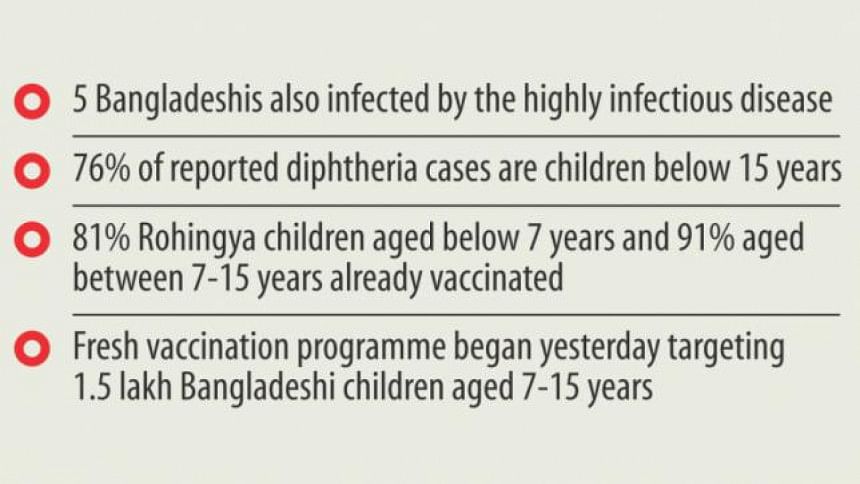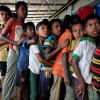Act promptly to combat the outbreak

We are alarmed to know that diphtheria, a highly contagious disease, has made a sudden comeback in Bangladesh. According to our report, the first case of diphtheria was reported in November in a Rohingya refugee camp in Ukhia, Cox's Bazar. As of now, the outbreak has killed 27 Rohingya children while 2,700 others have been infected with the disease. Five Bangladeshi children have also contracted the disease.
A long-forgotten bacterial disease in most parts of the world, there has been no reported case of diphtheria in Bangladesh for the last 35 years. Because of our efficient vaccination programmes, we thought that it had been eradicated for good. But now it seems to have made a comeback.
The Rohingya children living in the overcrowded camps as well as Bangladeshi children living in and around the camp areas are at high risk of getting infected as this disease can be transmitted from person to person through droplets from coughing and sneezing and physical contact. Thus we think this outbreak should be declared a public health emergency and a large-scale vaccination programme should be carried out to contain the spread of the disease.
However, it is reassuring that the government had responded quickly by launching a vaccination programme on December 12. We hope that this programme covers all the children in the camps, and the 2,700 Rohingyas who contracted the disease get proper treatment. We believe that proper coordination among the government and the local and international agencies is key to successfully combating the outbreak of the disease.

 For all latest news, follow The Daily Star's Google News channel.
For all latest news, follow The Daily Star's Google News channel. 





Comments